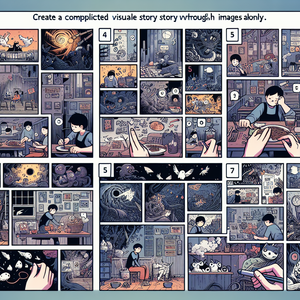The Hidden Benefits of Being a Veterinary Technician

One of the most significant advantages of being a veterinary technician is the level of job satisfaction that comes from working with animals and their owners. Many veterinary technicians find joy in their daily tasks, whether it’s administering treatments, assisting in surgeries, or comforting anxious pets during check-ups. A study conducted by the National Association of Veterinary Technicians in America (NAVTA) found that over 85% of veterinary technicians reported high levels of job satisfaction due to their direct involvement in animal care and welfare.
Career Growth Opportunities: A Path to Advancement
Veterinary technicians have a plethora of opportunities for career advancement that can lead to both personal and professional fulfillment. Many technicians choose to specialize in areas such as anesthesia, dentistry, or emergency care, which not only enhances their skill set but also opens doors to higher-paying positions.
The Impact on Animal Welfare: A Noble Cause
At the heart of the veterinary technician’s role is a profound commitment to animal welfare. These professionals are often the first line of defense in ensuring that pets receive the care they need. Their knowledge and skills contribute significantly to improving the health outcomes of countless animals.
In conclusion, the hidden benefits of being a veterinary technician extend far beyond the realm of financial compensation. The emotional rewards, opportunities for career advancement, and the significant impact on animal welfare all contribute to a fulfilling and meaningful career.
Veterinary Anesthesia Technician
Specialty veterinary clinics, emergency animal hospitals, and academic veterinary institutions
Core Responsibilities
Administer anesthesia and monitor patients during surgical procedures to ensure their safety and comfort.
Collaborate with veterinarians to develop anesthesia protocols tailored to individual animal needs.
Maintain and calibrate anesthetic equipment, ensuring it is ready for use and complies with safety standards.
Skills Required
Strong understanding of pharmacology and the effects of anesthetic agents on various species.
Certification in veterinary anesthesia from recognized organizations (e.g., Academy of Veterinary Anesthesia and Analgesia).
Excellent observational skills and the ability to respond quickly to changes in patient status.
Veterinary Dental Technician
Veterinary dental specialty clinics and general veterinary practices offering dental services
Core Responsibilities
Perform dental cleanings, extractions, and other dental procedures under the supervision of a veterinarian.
Educate pet owners on dental hygiene practices and the importance of regular dental care for their pets.
Assist in the development of dental treatment plans based on thorough oral examinations.
Skills Required
Specialized training in veterinary dentistry and familiarity with dental radiography.
Certification or coursework through recognized veterinary dental organizations (e.g., Academy of Veterinary Dentistry).
Strong communication skills to effectively convey oral health information to pet owners.
Veterinary Emergency and Critical Care Technician
Emergency veterinary clinics, animal trauma centers, and specialty animal hospitals
Core Responsibilities
Provide immediate care to critically ill or injured animals in emergency situations.
Monitor vital signs and administer medications and treatments as prescribed by veterinarians.
Participate in emergency procedures, including CPR and triage of incoming patients.
Skills Required
Advanced certification in emergency and critical care (e.g., from the Academy of Veterinary Emergency and Critical Care Technicians).
Ability to work in high-stress environments and make quick, informed decisions.
Strong teamwork skills to collaborate effectively with veterinarians and support staff.
Veterinary Technician Educator
Community colleges, technical schools, and universities with veterinary technology programs
Core Responsibilities
Teach and train aspiring veterinary technicians in accredited programs, covering both theoretical and practical aspects of the profession.
Develop curriculum and instructional materials to enhance student learning and engagement.
Mentor students during clinical rotations, providing guidance and feedback on their performance.
Skills Required
A degree in veterinary technology and relevant teaching qualifications or experience.
Strong organizational and communication skills to effectively convey complex information.
Passion for education and a commitment to fostering the next generation of veterinary professionals.
Veterinary Practice Manager
Private veterinary practices, animal hospitals, and veterinary clinics
Core Responsibilities
Oversee the daily operations of a veterinary practice, including staff management, budgeting, and client relations.
Implement policies and procedures to improve efficiency and enhance client satisfaction.
Ensure compliance with veterinary regulations and standards of care.
Skills Required
Strong leadership and organizational skills, with experience in business management or administration.
Familiarity with veterinary software systems and financial management practices.
Excellent interpersonal skills to build relationships with clients and staff.


